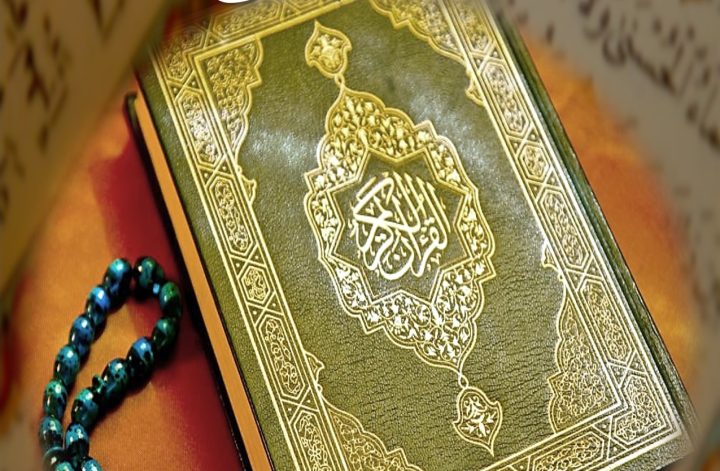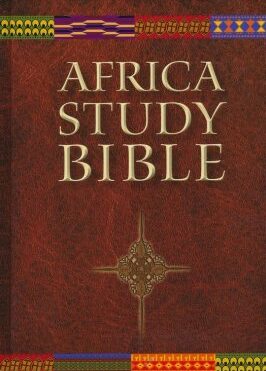To a Christian, the fourth chapter of the Quran would be most important for its emphatic denial of the crucifixion of Jesus (4:157) and Jesus’ sonship (4:171), important ideas we have addressed elsewhere. However, this chapter also fleshes out an idea earlier introduced in the Quran: the inferiority of women. As we shall argue, the Quran is consistent in its portrayal of the inferiority of women. Women in Islam are not only inferior in this life but will also remain inferior in the afterlife. Let us begin with 4:2-3:
Surah An-Nisa, Verse 2:
وَآتُوا الْيَتَامَىٰ أَمْوَالَهُمْ وَلَا تَتَبَدَّلُوا الْخَبِيثَ بِالطَّيِّبِ وَلَا تَأْكُلُوا أَمْوَالَهُمْ إِلَىٰ أَمْوَالِكُمْ إِنَّهُ كَانَ حُوبًا كَبِيرًا
And give to the orphans their property, and do not substitute worthless (things) for (their) good (ones), and do not devour their property (as an addition) to your own property; this is surely a great crime.
Surah An-Nisa, Verse 3:
وَإِنْ خِفْتُمْ أَلَّا تُقْسِطُوا فِي الْيَتَامَىٰ فَانكِحُوا مَا طَابَ لَكُم مِّنَ النِّسَاءِ مَثْنَىٰ وَثُلَاثَ وَرُبَاعَ فَإِنْ خِفْتُمْ أَلَّا تَعْدِلُوا فَوَاحِدَةً أَوْ مَا مَلَكَتْ أَيْمَانُكُمْ ذَٰلِكَ أَدْنَىٰ أَلَّا تَعُولُوا
And if you fear that you cannot act equitably towards orphans, then marry such women as seem good to you, two and three and four; but if you fear that you will not do justice (between them), then (marry) only one or what your right hands possess; this is more proper, that you may not deviate from the right course.
One interesting point here is that the Quran says for Muhammed (and Islamic men) to marry orphan women if he does not think he can deal fairly with them by giving them properties belonging to them that he was maintaining for the orphans while they were underage. It is worth noting, first, that the verse explicitly applies to orphan women, not women in general – verse 3 depends on 2. Islamic men often rely on this passage to justify polygamy, but the passage seems only to support marriage to young, orphan Muslim women. Second, the men would marry the women because of their own moral weakness. Rather than enjoining the men to work on their character, Allah sanctions hiding character defects with marriage. Third, the verses seem to assume that marrying these orphan women is better for them than for the man to give them their property. Finally, the women have no say in the matter. These verses assume something not unusual in the ancient world: the inferiority of women.
Quran 4 elaborates on the inferiority of women. Here is verse 34:
Surah An-Nisa, Verse 34:
الرِّجَالُ قَوَّامُونَ عَلَى النِّسَاءِ بِمَا فَضَّلَ اللَّهُ بَعْضَهُمْ عَلَىٰ بَعْضٍ وَبِمَا أَنفَقُوا مِنْ أَمْوَالِهِمْ فَالصَّالِحَاتُ قَانِتَاتٌ حَافِظَاتٌ لِّلْغَيْبِ بِمَا حَفِظَ اللَّهُ وَاللَّاتِي تَخَافُونَ نُشُوزَهُنَّ فَعِظُوهُنَّ وَاهْجُرُوهُنَّ فِي الْمَضَاجِعِ وَاضْرِبُوهُنَّ فَإِنْ أَطَعْنَكُمْ فَلَا تَبْغُوا عَلَيْهِنَّ سَبِيلًا إِنَّ اللَّهَ كَانَ عَلِيًّا كَبِيرًا
Men are in charge of women by [right of] what Allah has given one over the other and what they spend [for maintenance] from their wealth. So righteous women are devoutly obedient, guarding in [the husband’s] absence what Allah would have them guard. But those [wives] from whom you fear arrogance – [first] advise them; [then if they persist], forsake them in bed; and [finally], strike them. But if they obey you [once more], seek no means against them. Indeed, Allah is ever Exalted and Grand.
Ontologically, women are inferior – and that is because Allah created them that way. Hence, the husband is authorized to deny sex to a disobedient wife as a disciplinary measure. Ordinarily, this would not be a punishment for the woman alone if the man did not have three other women in the house who would attend to his sexual needs. Furthermore, the Quran empowers the man to “strike” the woman who continues in disobedience even after cessation of intercourse. Interestingly, the verse concludes with the assumption that the woman would comply after a good beating. But what happens if she is cut from a different cloth and remains in disobedience? What should be immediately apparent is that this verse takes for granted that women are inferior creatures. This explains why “disobedience” is here interpreted from the man’s viewpoint. Of course, it is quite conceivable that the woman’s disobedience may be justified.
The inferiority theme continues in verse 43:
Surah An-Nisa, Verse 43:
يَا أَيُّهَا الَّذِينَ آمَنُوا لَا تَقْرَبُوا الصَّلَاةَ وَأَنتُمْ سُكَارَىٰ حَتَّىٰ تَعْلَمُوا مَا تَقُولُونَ وَلَا جُنُبًا إِلَّا عَابِرِي سَبِيلٍ حَتَّىٰ تَغْتَسِلُوا وَإِن كُنتُم مَّرْضَىٰ أَوْ عَلَىٰ سَفَرٍ أَوْ جَاءَ أَحَدٌ مِّنكُم مِّنَ الْغَائِطِ أَوْ لَامَسْتُمُ النِّسَاءَ فَلَمْ تَجِدُوا مَاءً فَتَيَمَّمُوا صَعِيدًا طَيِّبًا فَامْسَحُوا بِوُجُوهِكُمْ وَأَيْدِيكُمْ إِنَّ اللَّهَ كَانَ عَفُوًّا غَفُورًا
O you who have believed, do not approach prayer while you are intoxicated until you know what you are saying or in a state of janabah, except those passing through [a place of prayer], until you have washed [your whole body]. And if you are ill or on a journey or one of you comes from the place of relieving himself or you have contacted women and find no water, then seek clean earth and wipe over your faces and your hands [with it]. Indeed, Allah is ever Pardoning and Forgiving.
This verse removes any doubt on the Quran’s assumption about the status of women, as it places women in the same category of impurity as intoxication, illness, and defecation (when no water is available to clean up afterward). Remarkably, the verse says wiping the face and hands with dirt from the surface of the earth would purify a man made impure by copulating with a woman. No exceptions are given concerning whether the woman touched by the man is his wife.
Hence, the Quran affirms the inferiority of women in quite a colorful fashion. It is an ontology with legal ramifications, too. Hence, if the man accuses a wife of adultery, his testimony is equivalent to the witness of four men:
Surah An-Noor, Verse 6:
وَالَّذِينَ يَرْمُونَ أَزْوَاجَهُمْ وَلَمْ يَكُن لَّهُمْ شُهَدَاءُ إِلَّا أَنفُسُهُمْ فَشَهَادَةُ أَحَدِهِمْ أَرْبَعُ شَهَادَاتٍ بِاللَّهِ إِنَّهُ لَمِنَ الصَّادِقِينَ
And those who accuse their wives [of adultery] and have no witnesses except themselves – then the witness of one of them [shall be] four testimonies [swearing] by Allah that indeed, he is of the truthful.
The Quran does allow the accused wife to assert her innocence. But whereas the man only has to accuse the wife once, the protesting wife must swear by Allah four times that the man lies (Quran 24:8). In both cases, the Quran clearly assumes the woman’s inferiority. The woman’s inferior legal status is also expressed in Quran 2:228 and 282.
This inferiority transcends this life and carries on in the hereafter. The Quran repeatedly describes the rewards of the faithful in the afterlife. Here is an example in Quran 4:
Surah An-Nisa, Verse 57:
وَالَّذِينَ آمَنُوا وَعَمِلُوا الصَّالِحَاتِ سَنُدْخِلُهُمْ جَنَّاتٍ تَجْرِي مِن تَحْتِهَا الْأَنْهَارُ خَالِدِينَ فِيهَا أَبَدًا لَّهُمْ فِيهَا أَزْوَاجٌ مُّطَهَّرَةٌ وَنُدْخِلُهُمْ ظِلًّا ظَلِيلًا
And (as for) those who believe and do good deeds, We will make them enter gardens beneath which rivers flow, to abide in them for ever; they shall have therein pure mates, and We shall make them enter a dense shade.
This translation suggests that afterlife rewards are for both men and women. But “pure mates” suggests reasons to be doubtful. Indeed, here is Muhsin Khan’s version:
But those who believe (in the Oneness of Allah – Islamic Monotheism) and do deeds of righteousness, We shall admit them to Gardens under which rivers flow (Paradise), abiding therein forever. Therein they shall have Azwajun Mutahharatun [purified mates or wives (having no menses, stools, urine, etc.)] and We shall admit them to shades wide and ever deepening (Paradise).
So, “pure mates” refers to women being refurbished but not for their own sake. They will be renewed so the men may enjoy “brand-new” rewards. First, Quran 56 says:
Surah Al-Waqia, Verse 22:
وَحُورٌ عِينٌ
And [for them are] fair women with large, [beautiful] eyes,
Quran 55 elaborates on this idea:
Surah Ar-Rahman, Verse 46:
وَلِمَنْ خَافَ مَقَامَ رَبِّهِ جَنَّتَانِ
But for he who has feared the position of his Lord are two gardens –
Surah Ar-Rahman, Verse 70:
فِيهِنَّ خَيْرَاتٌ حِسَانٌ
In them are good and beautiful women –
Surah Ar-Rahman, Verse 74:
لَمْ يَطْمِثْهُنَّ إِنسٌ قَبْلَهُمْ وَلَا جَانٌّ
Man has not touched them before them nor jinni.
So, the fair women with large, beautiful eyes are virgins. Quran 56:35 strongly suggests that these women are earthly spouses recreated as virgins and given as rewards to the men. Even if they are new heavenly creations, the point stands that women continue to exist in the afterlife for men’s sexual needs. They remain a place for the man to sow his seeds (Quran 2:223). Interestingly, these apparently male-favoring texts do not make clear whether the men would also be purified by having no ejaculatory fluids since the women will have no menses.
In all of this, nothing is said about the rewards the faithful Muslim women will get in the afterlife. The Quran apparently assumes and expects women to be happy as rewards offered to men. Though both a man and a woman may be faithful to Allah, she is intended as a reward for a man. That is the lot Allah has allotted to them. So, the inferiority of women is an eternal truth in Islam. This contrasts sharply with the status the Bible confers on women, as argued elsewhere.




